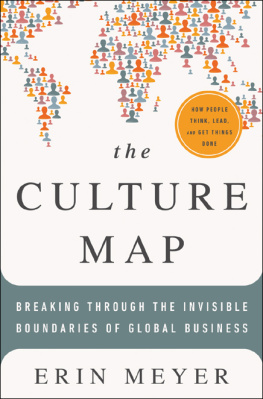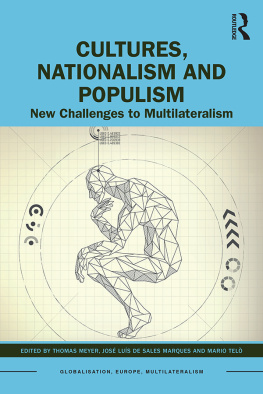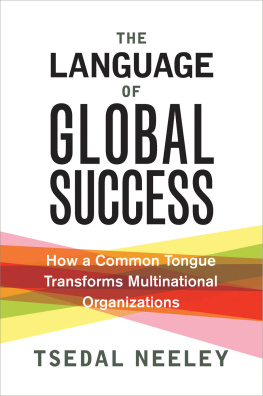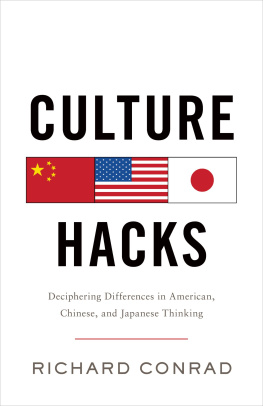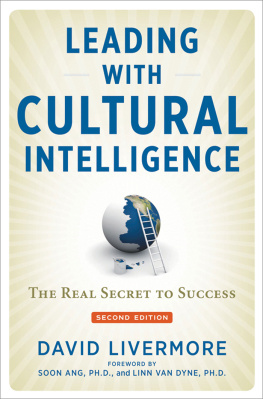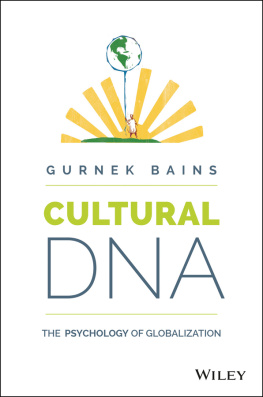THE CULTURE MAP


Copyright 2014 by Erin Meyer.
Published in the United States by PublicAffairs,
a Member of the Perseus Books Group
All rights reserved.
No part of this book may be reproduced in any manner whatsoever without written permission except in the case of brief quotations embodied in critical articles and reviews. For information, address PublicAffairs, 250 West 57th Street, 15th Floor, New York, NY 10107.
PublicAffairs books are available at special discounts for bulk purchases in the U.S. by corporations, institutions, and other organizations. For more information, please contact the Special Markets Department at the Perseus Books Group, 2300 Chestnut Street, Suite 200, Philadelphia, PA 19103, call (800) 810-4145, ext. 5000, or e-mail .
Book Design by Cynthia Young
Library of Congress Cataloging-in-Publication Data
Meyer, Erin.
The culture map : breaking through the invisible boundaries of global business / Erin Meyer.
pages cm
Includes bibliographical references and index.
ISBN 978-1-61039-259-4 (e-book) 1. Diversity in the workplace. 2. Psychology, Industrial. 3. Interpersonal relations. I. Title.
HF5549.5.M5M494 2014
658.049--dc23
2013048509
First Edition
10 9 8 7 6 5 4 3 2 1
This book is dedicated to my sons, Ethan and Logan, who show me daily what it means to grow up across cultures, and to my husband, Eric, who made this all possible.
CONTENTS
W hen dawn broke that chilly November morning in Paris, I was driving to my office for a meeting with an important new client. I hadnt slept well, but that was nothing unusual, since before an important training session I often have a restless night. But what made this night different were the dreams that disturbed my sleep.
I found myself shopping for groceries in a big American-style supermarket. As I worked my way through my listfruit, Kleenex, more fruit, a loaf of bread, a container of milk, still more fruitI was startled to discover that the items were somehow disappearing from my cart more quickly than I could find them and stack them in the basket. I raced down the aisle of the store, grabbing goods and tossing them into my cart, only to see them vanish without a trace. Horrified and frustrated, I realized that my shopping would never be complete.
After having this dream repeatedly throughout the night, I gave up trying to sleep. I got up, gulped a cup of coffee and got dressed in the predawn dark, and wound my way through the empty Paris streets to my office near the Champs Elyses to prepare for that days program. Reflecting that my nightmare of ineffectual shopping might reflect my anxiety about being completely ready for my clients, I poured my energy into arranging the conference room and reviewing my notes for the day ahead. I would be spending the day with one of the top executives at Peugeot Citron, preparing him and his wife for the cultural adjustments theyd need to make in their upcoming move to Wuhan, China. If the program was successful, my firm would be hired to provide the same service for another fifty couples later in the year, so there was a lot at stake.
Bo Chen, the Chinese country expert who would be assisting with the training session, also arrived early. Chen, a thirty-six-year-old Paris-based journalist from Wuhan, worked for a Chinese newspaper. He had volunteered to act as a Chinese culture expert for the training, and his input would be one of the most critical elements in making the day a success. If he was as good as I hoped, the program would be a hit and we would get to conduct the fifty follow-up sessions. My confidence in Chen had been bolstered by our preparatory meetings. Articulate, extroverted, and very knowledgeable, Chen seemed perfect for the job. I had asked him to prepare two to three concrete business examples to illustrate each cultural dimension I would be covering during the program, and he had enthusiastically confirmed he would be ready.
Monsieur and Madame Bernard arrived, and I installed them on one side of the big glass rectangular table with Chen on the other side. Taking a deep, hopeful breath, I began the session, outlining on a flip chart the cultural issues that the Bernards needed to grasp so their time in China would be a success. As the morning wore on, I explained each dimension of the key issues, answered the Bernards questions, and carefully kept an eye on Chen so I could help facilitate his input.
But Chen didnt seem to have any input. After finishing the first dimension, I paused briefly and looked to him for his input, but he didnt speak up. He didnt open his mouth, move his body forward, or raise his hand. Apparently he had no example to provide. Not wanting to embarrass Chen or to create an awkward situation by calling on him when he was not ready, I simply continued with my next point.
To my growing dismay, Chen remained silent and nearly motionless as I went through the rest of my presentation. He nodded politely while I was speaking, but that was all; he used no other body language to indicate any reactions, positive or negative. I gave every example I could think of and engaged in dialogue with the client as best I could. Dimension after dimension, I spoke, shared, and consulted with the Bernardsand dimension after dimension, there was no input from Chen.
I continued for three full hours. My initial disappointment with Chen was spilling over into full-fledged panic. I needed his input for the program to succeed. Finally, although I didnt want to create an awkward moment in front of the client, I decided to take a chance. Bo, I asked, did you have any examples you would like to share?
Chen sat up straight in his chair, smiled confidently at the clients, and opened up his notebook, which was filled with pages and pages of typed notes. Thank you, Erin, he replied. I do. And then, to my utter relief, Chen began to explain one clear, pertinent, fascinating example after another.
In reflecting on the story of my awkward engagement with Silent Bo, its natural to assume that something about Chens personality, my personality, or the interaction between us might have led to the strained situation. Perhaps Chen was mute because he is not a very good communicator, or because he is shy or introverted and doesnt feel comfortable expressing himself until pushed. Or perhaps I am an incompetent facilitator, telling Chen to prepare for the meeting and then failing to call on him until the session was almost over. Or maybe, more charitably, I was just so tired from dreaming about lost fruit all night long that I missed the visual cues Chen was sending to indicate that he had something to say.
In fact, my previous meetings with Chen had made it clear to me that he was neither inarticulate nor shy; he was actually a gifted communicator and also bursting with extroversion and self-confidence. Whats more, Id been conducting client meetings for years and had never before experienced a disconnect quite like this one, which suggested that my skills as a facilitator were not the source of the problem.
The truth is that the story of Silent Bo is a story of culture, not personality. But the cultural explanation is not as simple as you might think. Chens behavior in our meeting lines up with a familiar cultural stereotype. Westerners often assume that Asians, in general, are quiet, reserved, or shy. If you manage a global team that includes both Asians and Westerners, it is very likely that you will have heard the common Western complaint that the Asian participants dont speak very much and are less forthright about offering their individual opinions in team meetings. Yet the cultural stereotype does not reflect the actual reason behind Chens behavior.
Next page

